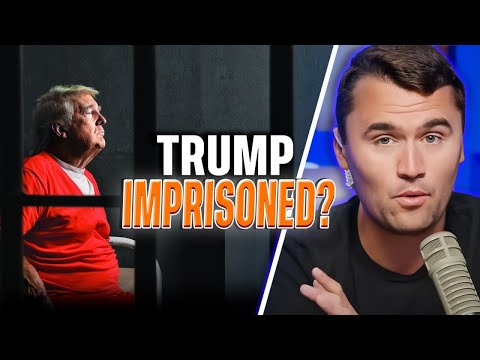**Corruption and Controversy: The Ongoing Saga in Trump’s Legal Battles**
In the latest chapter of the ongoing legal dramas surrounding former President Donald Trump, an unsettling situation has emerged involving Judge Juan Maran and the implications of presidential immunity. This discussion, albeit rooted in serious constitutional principles, does leave one wondering: can a sitting president face charges brought by a local prosecutor? According to legal experts, the answer might not be as cut and dry as one would hope.
Back in June, the Supreme Court handed down a monumental decision regarding presidential immunity, asserting that any president is shielded from criminal prosecution for actions taken in the course of their official duties. This means that the actions of a president, during their time in office, cannot be used against them in a court of law, a protective measure designed to keep politics from unduly influencing the presidency. However, it seems that Judge Maran may be sidestepping this important ruling, raising concerns of a judicial overreach.
For instance, claims have surfaced alleging that Judge Maran allowed evidence gathered from Trump’s former aides to be presented in court, despite the Supreme Court’s clear ruling on presidential actions being beyond reproach. Critics suggest this not only undermines the authority of the highest court in the land but can also lead to severe repercussions for the integrity of the presidency itself. If former aides’ testimonies become admissible, one has to ponder: Where does it end? Could any official act of a sitting president be turned into fodder for legal battles?
The implications of these legal disputes are alarming for the nation’s stability. One commentator pointed out, in a tone tinged with sarcasm, that this situation feels like a bad spy movie. Imagine a president navigating through terms of office under the constant threat of criminal prosecution. The fear of being taken to court could stifle important decisions—like funding for essential services—if a prosecutor might retaliate with charges to thwart policy decisions. This scenario reads less like a democratic process and more like a constitutional crisis in the making.
Moreover, the political motivations behind such legal actions cannot be overlooked. Allegations have been made suggesting that local prosecutors and judges may have weaponized their interests against political foes. With figures like Alvin Bragg and Judge Maran at the helm, the stakes have never seemed higher. Speculation continues to swirl about a possible return to the long-standing question: could a president face jail time while in office? A thought shared only in hushed corners as it begins to materialize into a more credible threat.
As discussions of presidential immunity grow louder, many are now calling for reform. There are voices urging that investigations should be turned around—where the focus is set on the “weaponization” of justice by the very entities designed to uphold the law. In what could be described as an effort to serve the scales of justice balanced, advocates from various sides of the aisle are starting to echo the urgent need for accountability not just for public officials, but also for the integrity of the judicial system at large.
In conclusion, while the circus of Trump’s legal battles unfolds, the implications of these events extend beyond one man’s presidency. It represents a pivotal moment for the political landscape and the future of judicial autonomy in America. Whether this is a harbinger of necessary reform or a deeper slide into political chaos remains to be seen, but one thing is for sure: the story is far from over, and the plot thickens every day.



